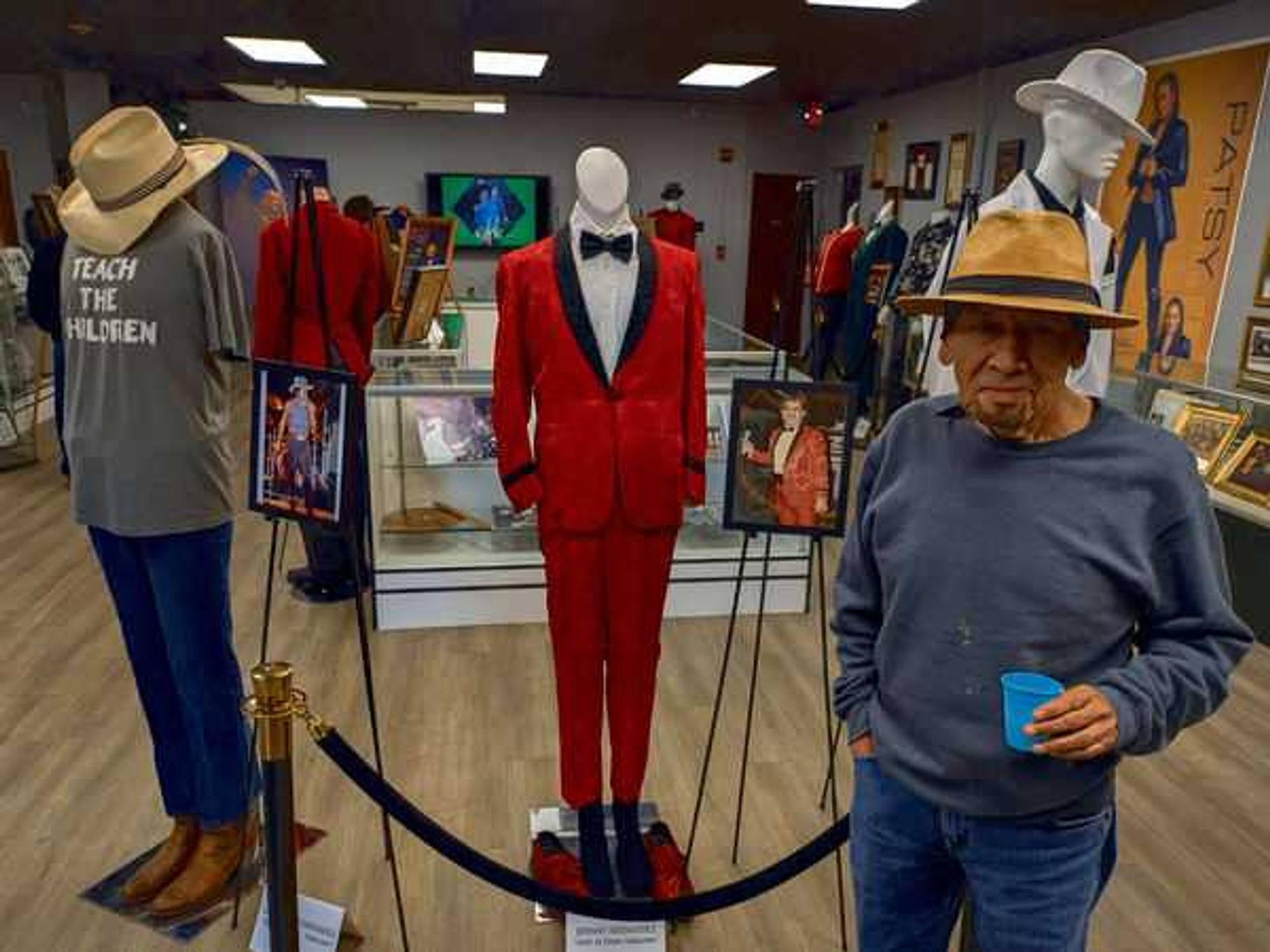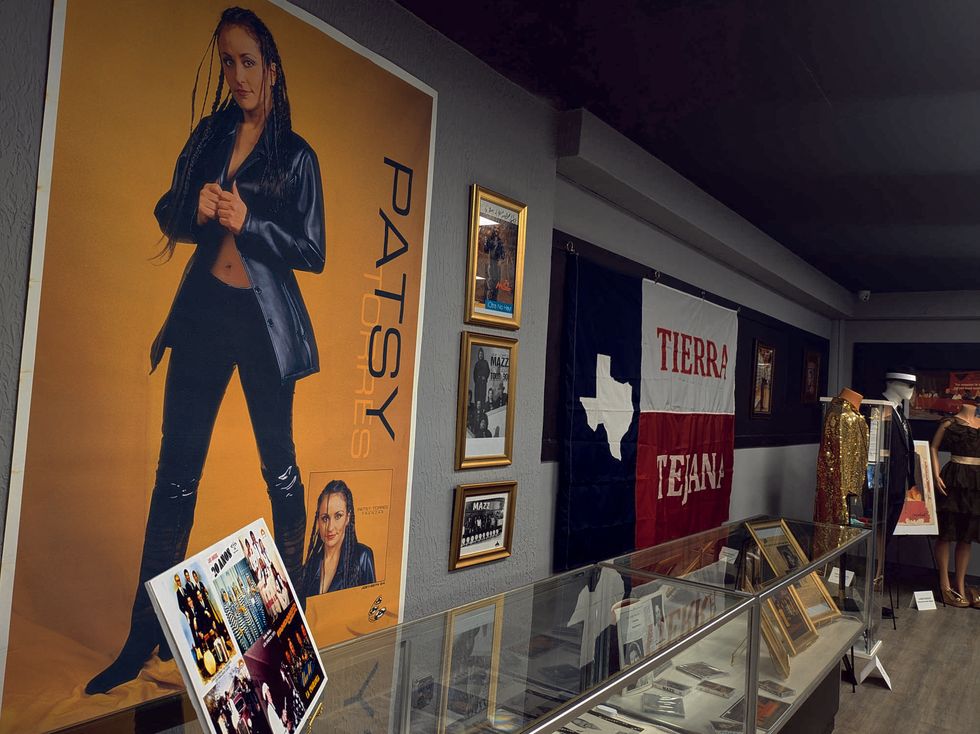Travelin' Man
Say cheese: In China travel, foreigners find themselves unwitting stars
 For reasons I can't quite explain, many Chinese people like having their picturetaken with Westerners.Photo by Peter Barnes
For reasons I can't quite explain, many Chinese people like having their picturetaken with Westerners.Photo by Peter Barnes Fried duck heads and other treats at a fast-food restaurant in BeijingPhoto by Peter Barnes
Fried duck heads and other treats at a fast-food restaurant in BeijingPhoto by Peter Barnes Note the absence of Taiwan.Photo by Peter Barnes
Note the absence of Taiwan.Photo by Peter Barnes For China's growing rank of the self-employed, I suppose.Photo by Peter Barnes
For China's growing rank of the self-employed, I suppose.Photo by Peter Barnes Because 80 percent choice happiness is not enough.Photo by Peter Barnes
Because 80 percent choice happiness is not enough.Photo by Peter Barnes Moldy tofu for sale in TunxiPhoto by Peter Barnes
Moldy tofu for sale in TunxiPhoto by Peter Barnes Moldy tofu for sale in TunxiPhoto by Peter Barnes
Moldy tofu for sale in TunxiPhoto by Peter Barnes A typical scene from a dumpling shop in a Beijing hutong, or neighborhood alleyPhoto by Peter Barnes
A typical scene from a dumpling shop in a Beijing hutong, or neighborhood alleyPhoto by Peter Barnes One of many lovely dining options in BeijingPhoto by Peter Barnes
One of many lovely dining options in BeijingPhoto by Peter Barnes All the same, this sign maker's English is much better than my Chinese.Photo by Peter Barnes
All the same, this sign maker's English is much better than my Chinese.Photo by Peter Barnes "Don't flirt monkeys by feedine."Photo by Peter Barnes
"Don't flirt monkeys by feedine."Photo by Peter Barnes Note the small, chili-weilding chicken breathing fire.Photo by Peter Barnes
Note the small, chili-weilding chicken breathing fire.Photo by Peter Barnes
I quietly admired the old woman’s grin, which likely survived World War II, subsequent civil war, mass starvation during the Great Leap Forward and mass violence during the Cultural Revolution. Now, she knocked shoulders with a gawky American as our bus jerked through the churned earth of a half-built freeway financed by modern Chinese capitalism.
My eye caught the raised gold stitching on her Ferrari-red Adidas jacket. “Player,” read the English text above her aged right breast, “Sex is a high performance thing.”
That’s what China is like: as disarming as it is difficult for foreigners to comprehend. With that in mind, here are answers to a few common questions about traveling to the Far East.
What’s it like being illiterate?
Awkward but manageable. I know how to say one thing in Chinese — “thank you” — and I know how to read a single symbol — “woman.” (The latter kept me from wandering into the wrong bathroom.)
Otherwise, the language barrier frequently reduced me to an inexplicably grateful dolt pointing a blunt finger at maps and trying to charade my way through transactions with all the finesse of a first grader. Fortunately, where foreigners fall short the Chinese usually pick up the slack. All young people learn basic English in school, and most tourist facilities employ English speakers.
Thanks to the Beijing Olympics, Shanghai Expo, Guangzhou’s Asian Games and other government showcases, major cities tend to have signs in English, as do airports and train stations.
I’ve been watching Food Network. Do they really eat all that weird stuff?
Chinese history goes back 2,000 years. Over those centuries, people have figured out how to make a tasty, family-style dish from just about every animal that doesn’t contain a lethal neurotoxin (and a couple that do.) Snacks include deep-fried duck heads, moldy (locals euphemize “strong-smelling”) tofu, simmered mud snails or a selection of exotic treats from one Beijing shop advertising “Litchi Cushion Chaosan Earthenpot Gruel.”
Timid palate? Fear not. There are more dishes built around pork, chicken, fish, noodles and dumplings than one could sample in a lifetime.
What about ... dogs?
In Sichuan and a few other provinces a breed of canine called “yellow dog” is raised for consumption, usually in the winter. It’s a regional specialty that’s unlikely to show up on a Westerner’s table unless he orders it.
What do the Chinese eat for breakfast?
Fried dough and a bowl of hot, sugared soy milk are the Chinese answer to the Croissan'Wich. Other restaurant options include steamed buns, dumplings and noodles. Coffee, still something of a boutique item, costs as much as it does here.
How much tip is expected?
None. Rich-Westerner guilt is normal at first, but most grow to relish the absence of our obnoxious baksheesh culture, in which employers to severely underpay their staff who in turn expect customers to pick up the slack.
What are the hotels like?
Chinese beds are hard, more like box springs than mattresses. Rooms lack alarm clocks but often provide free toothbrushes. Most come with an electric tea kettle that's good for purifying water in a pinch.
Are logistics hard to iron out from the United States?
Houstonians have the luxury of wandering up Montrose to the Chinese Consulate to apply for a visa, which must be obtained in advance.
Elong.net and Ctrip.com book Chinese airlines and hotels in English. Internal flights are cheap, with the price determined by the distance traveled. Discounts of 30 to 50 percent are common for advance bookings.
Train tickets aren’t sold very far in advance and can’t be purchased from the states without the help of someone in China. Once there, hotels, travel agencies and English speakers manning the “foreigners” window at larger train stations make obtaining tickets relatively easy and inexpensive.
I’d love a fake iPad, but I’ve only got $100.
Go here. Need a phone? Ubiquitous mobile shops and pay-as-you-go SIM cards offer a depressing reminder that even communist countries now have a more functional market for cell service than we do.
Isn’t it intimidating to visit a one-party state known for human rights violations and rigorous controls on information?
Tourists, while warmly welcomed by the government, find themselves subject to the same censorship as everyone else. On my way out of the country I picked up a copy of The Economist and found censors had blacked out Taiwan on a map that labeled the island as a separate country. YouTube, Facebook and Twitter don’t work. (Although that might help explain why the Chinese economy is growing so much faster than ours.)
And the state-run English newspapers read with all the objectivity of a Parade Magazine advertorial on commemorative plates.
Mao’s towering visage and the legions of police watching Tiananmen Square are ominous. The vendors hawking plush panda hats and Mao watches right below the chairman’s bloated face are not. It’s natural to be wary of a government with a Nobel laureate in prison. But for tourists, most CCP paranoia amounts to little more than a passing nuisance.
Won’t I stand out?
Like a guy at a Passion Party. For reason’s I’ve yet to understand, many in China find Westerners fascinating and enjoy taking photographs of them. I’ve found it’s best just to feel flattered and smile.
At a hotel in Yangshuo, one college student who wanted me to help her practice English slipped a delightful note under my door. It opened with the greeting “Dear Mr. Foreigner” and closed with a salutation that pretty much summed up the way most people in the country made me feel: “Welcome to China, wish you can enjoy yourself here.”
Editor's note: This is the first story in a three-part series on Peter Barnes' Far East travels. Look for his feature on being Shanghaied in Hong Kong next Sunday.

 The newly opened Totally Tejano Hall of Fame and Museum includes a growing collection of memorabilia. Photo by Edmond Ortiz
The newly opened Totally Tejano Hall of Fame and Museum includes a growing collection of memorabilia. Photo by Edmond Ortiz